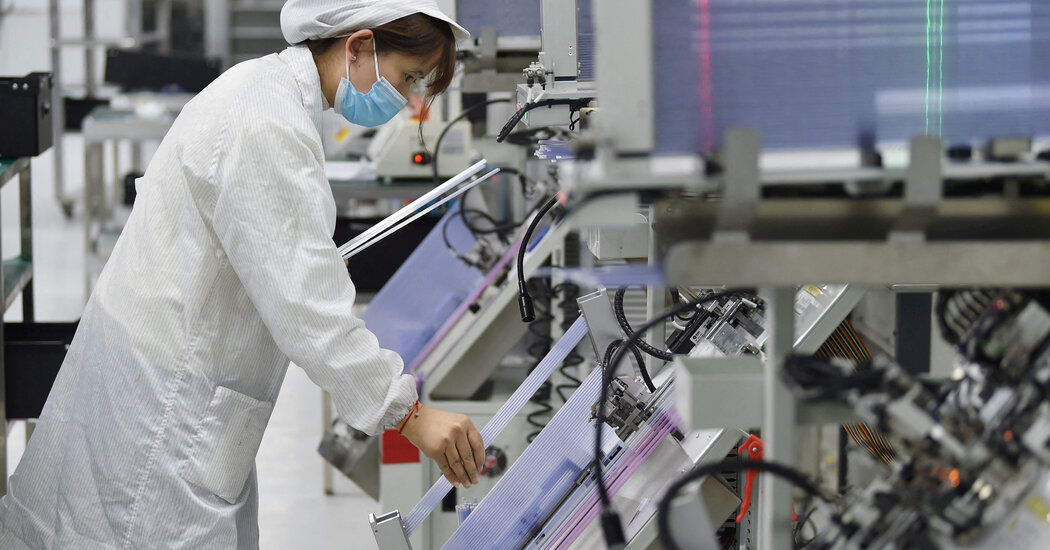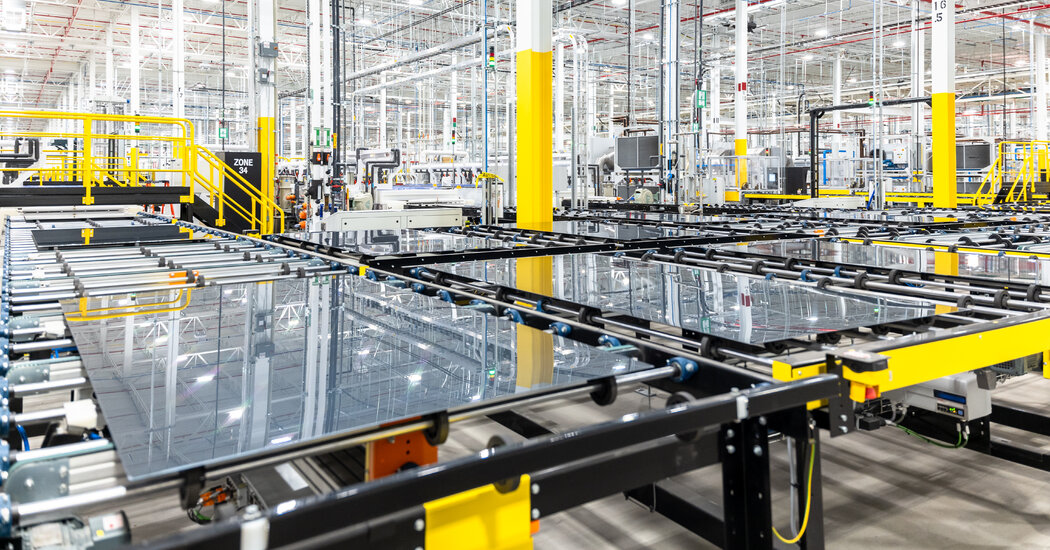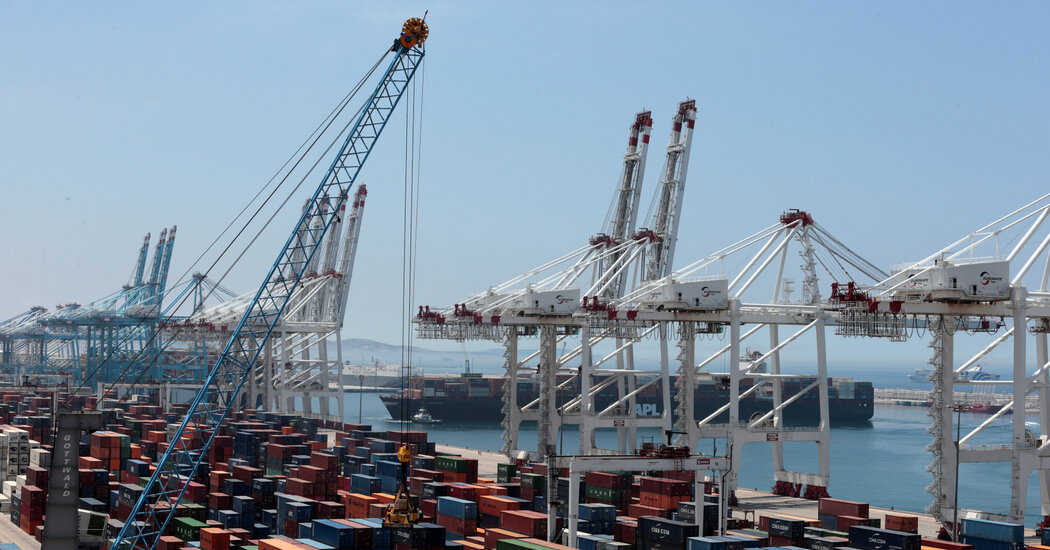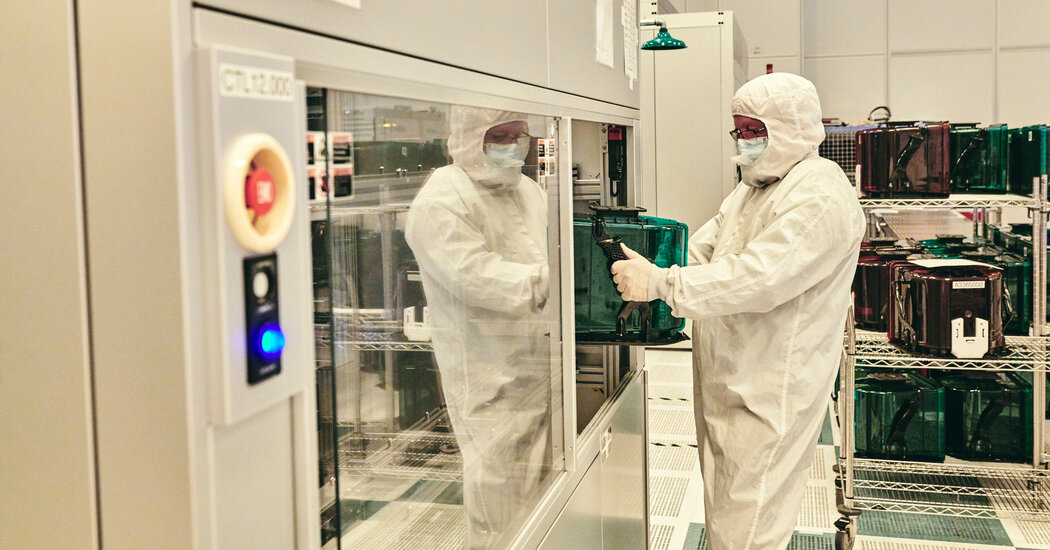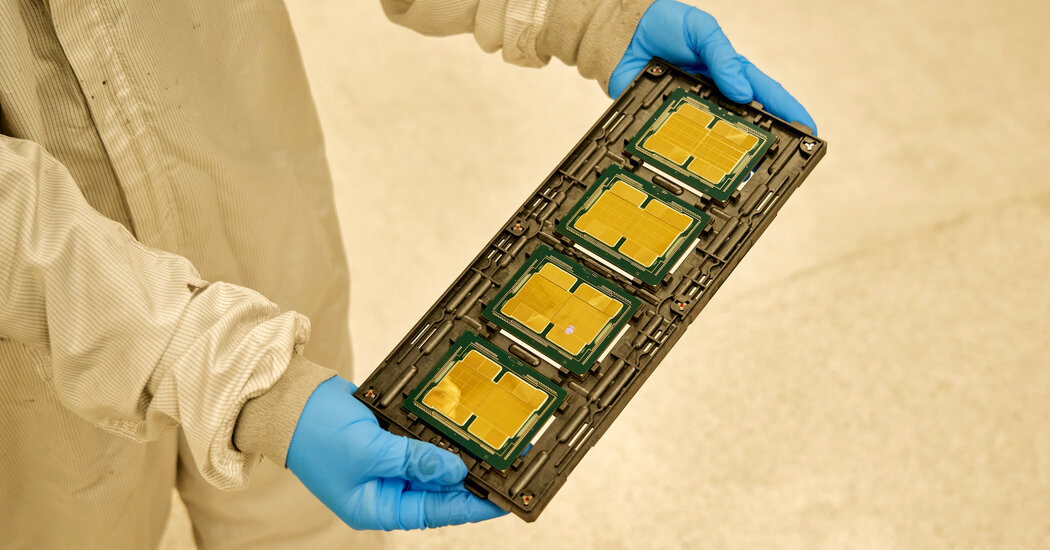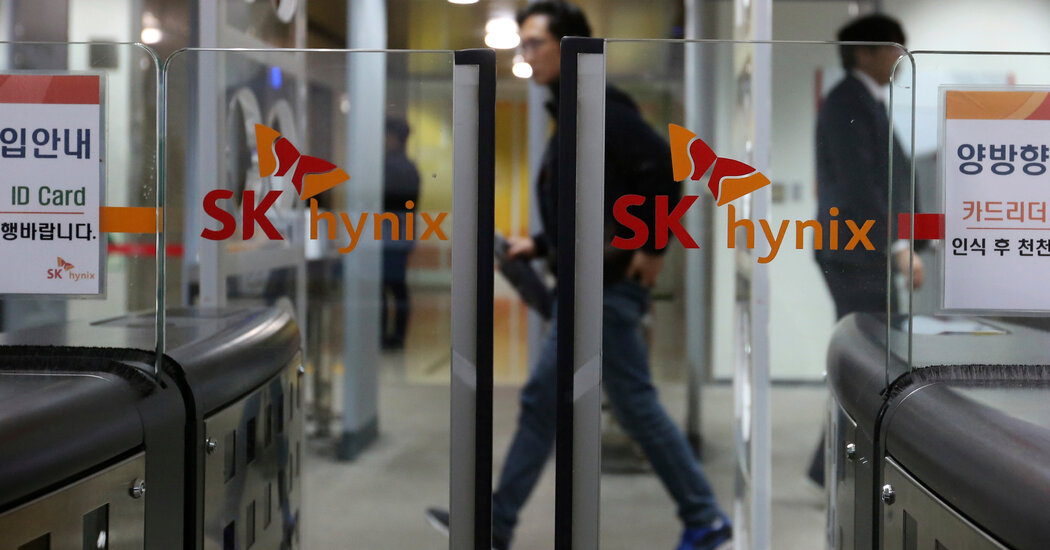In November, a year after ChatGPT’s release, a relatively unknown Chinese start-up leaped to the top of a leaderboard that judged the abilities of open-source artificial intelligence systems. The Chinese firm, 01.AI, was only eight months old but had deep-pocketed backers and a $1 billion valuation and was founded by a well-known investor and technologist, Kai-Fu Lee. In interviews, Mr. Lee presented his A.I. system as an alternative to options like Meta’s generative A.I. model, called LLaMA. There was just one twist: Some of the technology in 01.AI’s system came…
Tag: Computer Chips
American Firms Invested $1 Billion in Chinese Chips, Lawmakers Find
A congressional investigation has determined that five American venture capital firms invested more than $1 billion in China’s semiconductor industry since 2001, fueling the growth of a sector that the United States government now regards as a national security threat. Funds supplied by the five firms — GGV Capital, GSR Ventures, Qualcomm Ventures, Sequoia Capital and Walden International — went to more than 150 Chinese companies, according to the report, which was released Thursday by both Republicans and Democrats on the House Select Committee on the Chinese Communist Party. The…
Flush With Investment, New U.S. Factories Face a Familiar Challenge
The Biden administration has begun pumping more than $2 trillion into U.S. factories and infrastructure, investing huge sums to try to strengthen American industry and fight climate change. But the effort is facing a familiar threat: a surge of low-priced products from China. That is drawing the attention of President Biden and his aides, who are considering new protectionist measures to make sure American industry can compete against Beijing. As U.S. factories spin up to produce electric vehicles, semiconductors and solar panels, China is flooding the market with similar goods,…
The Next Front in the U.S.-China Battle Over Chips
NASA has chosen the technology to help it land future spacecraft on unmapped planets. Meta uses the technology for artificial intelligence. Chinese engineers have turned to it to encrypt data. And it could represent the next front in the semiconductor trade war between the United States and China. The technology is RISC-V, pronounced “risk five.” It evolved from a university computer lab in California to a foundation for myriad chips that handle computing chores. RISC-V essentially provides a kind of common language for designing processors that are found in devices…
Chinese Traders and Moroccan Ports: How Russia Flouts Global Tech Bans
Shortly after Russia invaded Ukraine last year, engineers at Convex, a Russian telecommunications company, needed to find American equipment to transmit data to the country’s feared intelligence service. But no gear was flowing in after Western nations imposed sweeping new trade limits on Russia. Convex’s employees soon found a solution. While Cisco, a U.S. tech provider, had halted sales to Russia on March 3, 2022, Convex’s engineers easily obtained the Cisco gear they needed through an obscure Russian e-commerce site called Nag, which had gotten around international trade restrictions by…
Lawmakers Press Biden Administration for Tougher Curbs on China Tech
Republican lawmakers are faulting the Biden administration’s enforcement of restrictions on China’s access to American technology, saying that the administration is still allowing semiconductors and other American innovation to flow to Beijing that could ultimately aid China in a military conflict. In a report released on Thursday, the House Foreign Affairs Committee said the administration had failed to enforce export controls that limit sales of advanced technology to China. The federal government has been steadily ramping up limits on sales to China of advanced chips and chip-making equipment over the…
For Biden, a Subtle Shift in the Power Balance With China’s Xi Jinping
When President Biden met President Xi Jinping on Wednesday on the edges of Silicon Valley, there was a subtle but noticeable shift in the power dynamic between two countries that have spent most of the past few years denouncing, undercutting and imposing sanctions on each other. For the first time in years, a Chinese leader desperately needed a few things from the United States. Mr. Xi’s list at the summit started with a revival of American financial investments in China and a break in the technology export controls that have,…
The Multimillion-Dollar Machines at the Center of the U.S.-China Rivalry
They are smooth white boxes, roughly the size of large cargo vans, and they are now at the heart of the U.S.-Chinese technology conflict. As the United States tries to slow China’s progress toward technological advances that could help its military, the complex lithography machines that print intricate circuitry on computer chips have become a key choke point. The machines are central to China’s efforts to develop its own chip-making industry, but China does not yet have the technology to make them, at least in their most advanced forms. This…
U.S. Tightens China’s Access to A.I. Chips
The Biden administration on Tuesday announced additional limits on sales of advanced semiconductors by American firms, shoring up restrictions issued last October to limit China’s progress on supercomputing and artificial intelligence. The rules appear likely to halt most shipments of advanced semiconductors from the United States to Chinese data centers, which use them to produce models capable of artificial intelligence. More U.S. companies seeking to sell China advanced chips, or the machinery used to make them, will be required to notify the government of their plans, or obtain a special…
Samsung and SK Hynix Get U.S. Waivers From Export Curbs
The South Korean government said on Monday that the country’s semiconductor manufacturers have secured waivers from U.S. government rules that threatened to limit their businesses in China. At issue is the continuation of licenses granted last year by the U.S. Commerce Department to Samsung and SK Hynix, the two dominant South Korean chip makers. The licenses effectively suspended 2022 controls on exports of semiconductors and chip making equipment to China. South Korea, an ally in America’s chip war with China, relies heavily on its semiconductor sector for jobs and revenue.…

